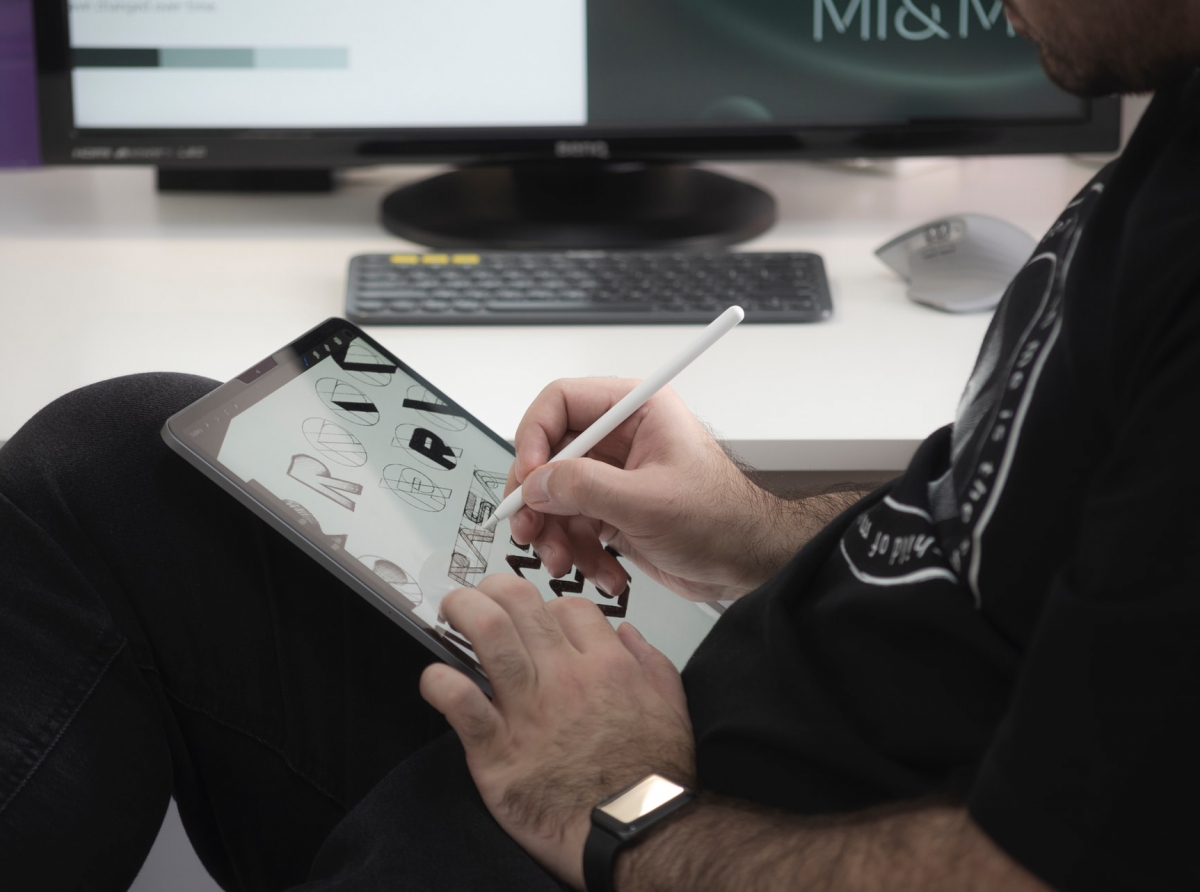
As the popularity of NFT continues to grow, we are witnessing many new projects and industries joining the blockchain revolution. NFTs still have a long way to go and there is a lot of room for expansion before they really go mainstream. In addition to improving the reliability, consistency and interoperability of blockchain platforms, NFTs also help bridge the gap between the digital and physical world. There are many use cases already today.
NFT Art
How to turn art into NFT? Could a painting be NFT? Users have a lot of questions, especially artists. Digital art has become one of the most common use cases for non-fungible tokens today. Tokenizing real-world works of art helps promote authenticity and transfers ownership to the artist or the highest bidder interested in purchasing a particular work of art.
However, the egregious misuse of digital art through the creation and distribution of digital copies of virtual artwork has been a longstanding problem. The need for digital proof of the authenticity and rarity of virtual art is paramount, and NFTs have managed to solve this problem with cryptography and blockchain.
Crypto art is based on digital authenticity and ownership. For example, CryptoPunk, one of the earliest NFT projects created in 2017. While anyone can download or save an image, the same cannot be said for proof of ownership of a particular image. NFTs are valuable not only in the artwork themselves, but also in the fact that they belong to the same owner.
How to turn art into NFT? Could a painting be NFT? Users have a lot of questions, especially artists. Digital art has become one of the most common use cases for non-fungible tokens today. Tokenizing real-world works of art helps promote authenticity and transfers ownership to the artist or the highest bidder interested in purchasing a particular work of art.
However, the egregious misuse of digital art through the creation and distribution of digital copies of virtual artwork has been a longstanding problem. The need for digital proof of the authenticity and rarity of virtual art is paramount, and NFTs have managed to solve this problem with cryptography and blockchain.
Crypto art is based on digital authenticity and ownership. For example, CryptoPunk, one of the earliest NFT projects created in 2017. While anyone can download or save an image, the same cannot be said for proof of ownership of a particular image. NFTs are valuable not only in the artwork themselves, but also in the fact that they belong to the same owner.

How can NFT tokens be used?
Digital Collectibles as NFT
Crypto collectibles are digital items with unique algorithms that provide added value. A cryptographic collectible is a digital or physical item that is authenticated using blockchain technology. But unlike other cryptocurrencies, collectibles must be unique and limited in quantity.
One notable example of digital collectibles is CryptoKitties. Released in 2017, CryptoKitties is a blockchain-based game in which each NFT is a virtual cat that people can buy. Interestingly, the value of each collectible is determined by many factors. So in CryptoKitties it depends primarily on the combination of the rare appearance, function and usefulness of these cute little virtual kitties.
Since the value of NFT is determined by uniqueness, this paves the way for the digitization of the collectibles market. NFT collectibles encourage proof of ownership to further protect underlying digital assets from copywriting infringement.
Crypto collectibles are digital items with unique algorithms that provide added value. A cryptographic collectible is a digital or physical item that is authenticated using blockchain technology. But unlike other cryptocurrencies, collectibles must be unique and limited in quantity.
One notable example of digital collectibles is CryptoKitties. Released in 2017, CryptoKitties is a blockchain-based game in which each NFT is a virtual cat that people can buy. Interestingly, the value of each collectible is determined by many factors. So in CryptoKitties it depends primarily on the combination of the rare appearance, function and usefulness of these cute little virtual kitties.
Since the value of NFT is determined by uniqueness, this paves the way for the digitization of the collectibles market. NFT collectibles encourage proof of ownership to further protect underlying digital assets from copywriting infringement.
Online games and NFT
Blockchain has the potential to take gaming to the next level, and in-app purchases leveraging the potential of NFTs are becoming more and more popular. Blockchain gaming is emerging as a new trend for one reason: the demand for unique in-game purchases in online games, the price of which is determined by the rarity, uniqueness, and value that each of these items adds to the overall gaming experience. Gamers are realizing the importance of these digital items sold through in-game purchases, leading to a multi-billion dollar industry. Gaming is one area where irreplaceable tokens can be fully utilized.
Gaming NFTs epitomize art, collectibility, and utility for gamers. For example, Axie Infinity and Battle Pets are Pokemon-style games in which pets and other unique items are sold in the form of non-fungible tokens that can be bought and sold on external peer-to-peer marketplaces.
Blockchain has the potential to take gaming to the next level, and in-app purchases leveraging the potential of NFTs are becoming more and more popular. Blockchain gaming is emerging as a new trend for one reason: the demand for unique in-game purchases in online games, the price of which is determined by the rarity, uniqueness, and value that each of these items adds to the overall gaming experience. Gamers are realizing the importance of these digital items sold through in-game purchases, leading to a multi-billion dollar industry. Gaming is one area where irreplaceable tokens can be fully utilized.
Gaming NFTs epitomize art, collectibility, and utility for gamers. For example, Axie Infinity and Battle Pets are Pokemon-style games in which pets and other unique items are sold in the form of non-fungible tokens that can be bought and sold on external peer-to-peer marketplaces.
Proof of ownership and authenticity of luxury items.
The fashion industry can greatly benefit from blockchain-based NFT technology. This will not only help consumers verify the ownership information of their products and accessories digitally, but it will also significantly reduce the risks of counterfeit fraud. NFT-shaped clothing and accessories allow users to scan a simple QR code on price tags and extract information such as the origin of an asset. In addition, it will also provide consumers with information about the people who previously owned the asset.
The textile industry can also benefit from blockchain technology to reduce carbon dioxide emissions, thereby enhancing employee well-being and protecting customers. The convergence of NFT and blockchain could pave the way for new supply chain applications of blockchain technology together in the fashion industry.
The fashion industry can greatly benefit from blockchain-based NFT technology. This will not only help consumers verify the ownership information of their products and accessories digitally, but it will also significantly reduce the risks of counterfeit fraud. NFT-shaped clothing and accessories allow users to scan a simple QR code on price tags and extract information such as the origin of an asset. In addition, it will also provide consumers with information about the people who previously owned the asset.
The textile industry can also benefit from blockchain technology to reduce carbon dioxide emissions, thereby enhancing employee well-being and protecting customers. The convergence of NFT and blockchain could pave the way for new supply chain applications of blockchain technology together in the fashion industry.
Tokenization of certificates, courses and licenses.
Using NFT allows you to tokenize certificates and licenses, verifying their ownership and authenticity. Many job applications and university admissions regions require applicants to provide certain documents and certificates confirming their competence and experience. However, sometimes there are limited ways to successfully authenticate these documents. In addition, there is the possibility that people or companies could forge documents.
Through the use of NFT when issuing certificates, companies and institutions can gain access to verification certificates, thereby offering proof of course completion. This can also apply to driving and other types of licenses.
Tokenization of sports or concert tickets.
Tokenizing tickets in the form of non-fungible tokens can benefit the sports industry. The secure nature of blockchain technology can solve the critical problem of counterfeit collectibles and tickets. The sports industry in particular is suffering huge losses due to these problems. However, NFT use cases may offer sports game tickets issued on the blockchain to prevent unauthorized access to important sporting events.
However, the use cases here are not limited to sporting events, but are also applicable to any music festival, for example. Thus, a ticket issued on the blockchain as a non-fungible token could help solve the counterfeiting problem for ticket distributors.
NFT in real estate.
Real estate is mired in a bureaucracy that involves layers of middlemen from real estate agents and banks to notaries and lawyers, adding to the cost of a simple transaction between the two parties.
By replacing these intermediaries with smart contracts that provide a secure and easy transfer of ownership, NFTs can significantly speed up the property purchase process. All ownership and rights history is recorded and transferred to the blockchain, and is instantly and easily verified.
NFTs can also allow partial ownership of real estate, allowing owners to quickly capitalize on previously illiquid assets and raise funds without going to a bank. The possibilities are endless and could have huge implications not only for the real estate industry, but also for the traditional financial sector.
Using NFT allows you to tokenize certificates and licenses, verifying their ownership and authenticity. Many job applications and university admissions regions require applicants to provide certain documents and certificates confirming their competence and experience. However, sometimes there are limited ways to successfully authenticate these documents. In addition, there is the possibility that people or companies could forge documents.
Through the use of NFT when issuing certificates, companies and institutions can gain access to verification certificates, thereby offering proof of course completion. This can also apply to driving and other types of licenses.
Tokenization of sports or concert tickets.
Tokenizing tickets in the form of non-fungible tokens can benefit the sports industry. The secure nature of blockchain technology can solve the critical problem of counterfeit collectibles and tickets. The sports industry in particular is suffering huge losses due to these problems. However, NFT use cases may offer sports game tickets issued on the blockchain to prevent unauthorized access to important sporting events.
However, the use cases here are not limited to sporting events, but are also applicable to any music festival, for example. Thus, a ticket issued on the blockchain as a non-fungible token could help solve the counterfeiting problem for ticket distributors.
NFT in real estate.
Real estate is mired in a bureaucracy that involves layers of middlemen from real estate agents and banks to notaries and lawyers, adding to the cost of a simple transaction between the two parties.
By replacing these intermediaries with smart contracts that provide a secure and easy transfer of ownership, NFTs can significantly speed up the property purchase process. All ownership and rights history is recorded and transferred to the blockchain, and is instantly and easily verified.
NFTs can also allow partial ownership of real estate, allowing owners to quickly capitalize on previously illiquid assets and raise funds without going to a bank. The possibilities are endless and could have huge implications not only for the real estate industry, but also for the traditional financial sector.


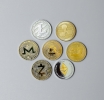
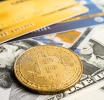
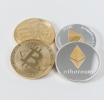


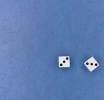






Report
My comments